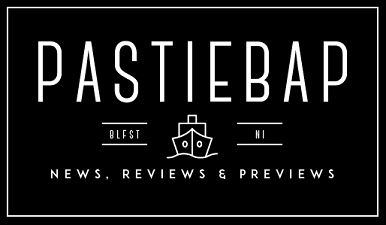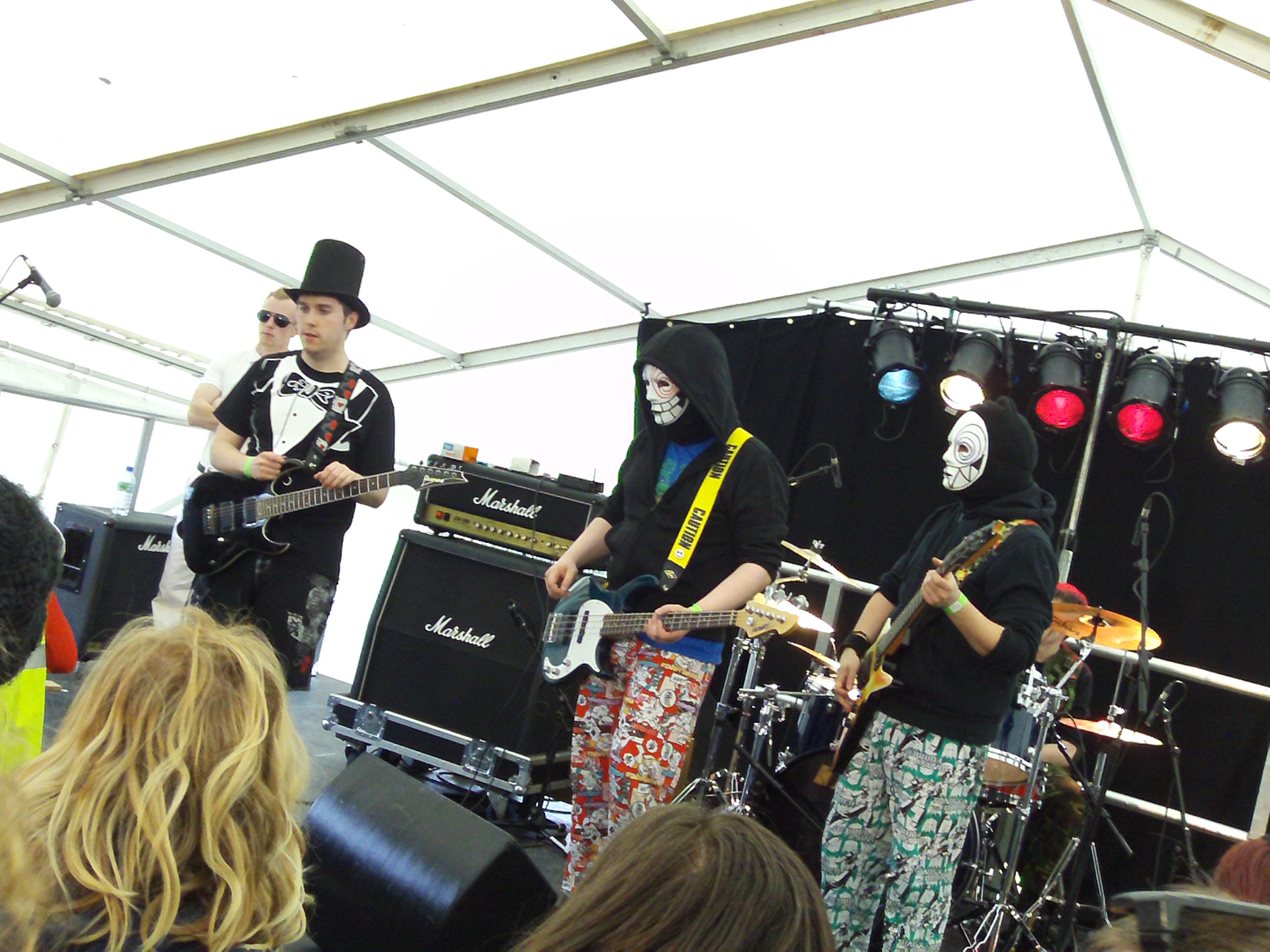Pastiebap.com asked Mental Deficiency guitarist Alex Kazam for his thoughts on how being from Northern Ireland affects his band.
1. Could you tell me a bit about how you promote your band and how that’s changed over the course of your career?
Like most unsigned acts who have self released an album and spend a lot of money on sexy stage-wear our promotional budget is a tad thin. Therefore we’ve relied heavily on the internet to promote the band. Facebook, Twitter, Youtube and our own website have been essential to reaching new fans and interacting with current ones. We have been lucky to get some publicity in various radio shows and print publications over the years but the internet is definitely where we’ve had the most success; it’s the one constant in our publicity strategy and the main cost is time.
2. What obstacles have you come across being in a band from Northern Ireland?
The main obstacle that is unique to Northern & Southern Ireland is the Irish Sea. Getting the money together for us to travel over the Edinburgh Fringe for example was not easy.
3. How do you think Northern Ireland’s music scene compares to others ie. Southern Ireland/UK?
It’s hard to define a music scene and it’s difficult to determine what aspects make one better than another. If we’re going purely on the quantity of quality bands from the countries you mentioned then the UK is of course leagues ahead of both the Northern Ireland and the South. They’ve got more variety of genres, magazines, festivals; you name it. A lot of that is down to the population size over there. When you take into consideration the smaller numbers over here however I think we do still have a wealth of talent and some extremely hard-working bands, both north and south of the border.
4. Do you think it’s harder for an alternative band to gain support from the local press/promoters?
I guess it depends how alternative. Support and exposure are two different things. Gaining exposure through local press and promoters is relatively easy – one of the advantages of our smaller population size. You just have to hound them a bit or find a friend of a friend who knows somebody that can help you out. From my own experience, I play in a band that’s pretty misunderstood by NI’s mainstream music media – probably because it’s hard to pigeonhole us into a particular niche (or because they don’t like us!). Despite this we’ve managed to gain some exposure that would be considered widespread on a local level, such as being interviewed for the Across the Line radio show. Getting press or promoters to SUPPORT you is different, this means they’ll actively help you out on a very regular basis and endorse you a bit more overtly. This requires a lot more legwork on the networking front, and creating music that the people you want to network with are into.
5. How was supporting Electric Six for you (the whole experience) and what do you think it’ll do for your band?
Supporting Electric Six was a great experience! I really enjoy their music and Mental Deficiency are often compared to them. We made a lot of new fans at that gig and and we always have fun playing to large crowds. In the long run, it’s a great thing to have on your CV. I know that the manager of Alestorm, another international band we’re supporting next year, was impressed that we were opening for Electric Six which helped convince him we were a good choice for the opening band. Good support slots help you get more support slots which is all all good for your profile.
6. What do you think of Shine Productions and MCD buying over Limelightand Katy’s? (I read your blog on this and was just wondering what you think it’ll mean for bands playing these venues in the future)
It’s a good thing. They’ve guaranteed the venues’ future as a live venue and both MCD and Shine appear to be business-savvy enough to ensure they continue to be mainstays of Belfast’s nightlife. I’m looking forward to seeing what changes they make to the club nights which have long been in need of an overhaul.
7. What do you think of the talks of scrapping the BBC Introducing NI radio show and do you think there is adequate support for NI bands?
This is a difficult question as it presents with me a conflict. I think the BBC is an institution in need of major reform, to the extent that I feel a publicly funded TV/Radio company is an archaic idea and that the whole thing should be scrapped. However, we can/have benefited from exposure on it; in particular we’ve been featured on both BBC Introducing and Across the Line. We’re very grateful for this exposure, especially to James Loveday for playing us on his monthly slot on BBC Introducing. However I get the impression that, in Mental Deficiency’s case, the regular BBC staff aren’t really digging our music and scrapping Introducing NI would have little effect on us. Either that or they buy into the myth about us that all our songs are x-rated and therefore won’t play them (7 of the 10 songs on the album are radio-friendly).
That said, if other bands from NI do benefit from it then I wish them the best of luck – more power to them. If the BBC continues to exist then keeping the show on the air it would be a good thing as there’s no harm in it. At the same time if it gets scrapped it’s not a major loss – properly utilizing the internet as a marketing tool can achieve a lot more for a band than a few plays on the radio in the middle of the night. To be honest though I think the entire BBC should be scrapped for the greater good, even if my band does stand to benefit from its continued existence.
8. Any general thoughts on the NI music scene and how/if you think being from Northern Ireland affects your chances of success?
It’s like any scene; it’s got good, bad and ok bands. A few of my favourites would be Roysta, Darkest Era, Gama Bomb, Gascan Ruckus, DutchSchultz, LaFaro, Sinocence and The Answer. There’s a ton of NI bands who have sadly called it a day who I also really like.
The Internet has democratized the music business somewhat. Despite our awkward location I believe any band can find success with enough savvy, perseverance and a clear idea in their heads of what they stand for.



